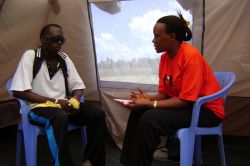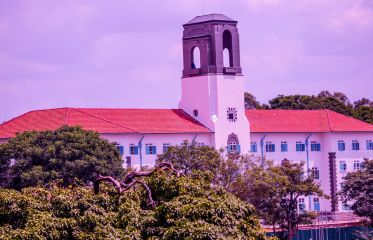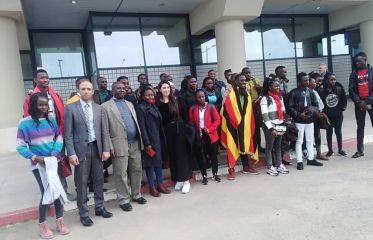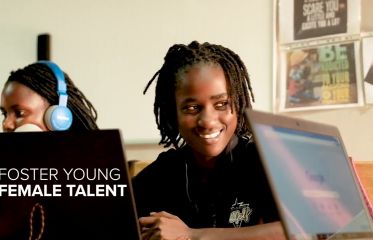Breaking News
- Flexible Remote Work Opportunity for University Students: Earn $100–$250 Per Month ...Read More
- Ministry of Education and Sports Azerbaijan Government Scholarships For 2025-2026 Academic Year ...Read More
- Government Sponsorship Undergraduate Admission Lists 2025-26 for Makerere University ...Read More
- Ministry of Education And Sports: Egyptian Government Scholarships 2025-2026 Academic Year ...Read More
- Ground Breaker Full Scholarship for girls to study Software Engineering 2025 July Intake ...Read More
- Tony Elumelu Foundation Entrepreneurship Programme (TEEP) 2025 for young African Entrepreneurs ...Read More
- DESIGNING FUTURES 2050 International Design Competition 2025 (€15,000 prize) ...Read More
- Ground Breaker Full time Scholarship for girls to study Software Engineering 2025 Intake ...Read More
- Ministry of Education And Sports Algerian Vocational Training Scholarships for 2024-2025 AY ...Read More
- Ministry of Education and Sports Advert for the Algerian Government Scholarships for 2024-2025 ...Read More
From Working as a Houseboy to Being the Best at Makerere University: Ssembuusi's Story of Overcoming Hardships and Achieving Success
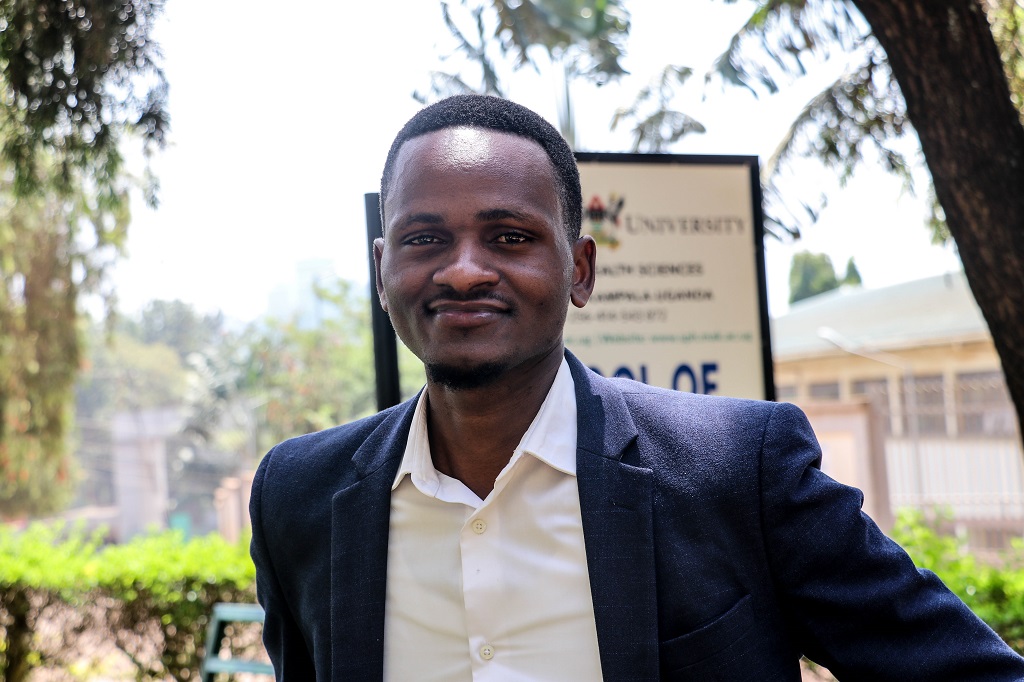
Against all odds, Allan Ssembuusi -Mayengo rose from a house boy to a First-Class student. In this episode of Makerere University’s week-long 73rd graduation ceremony slated to run from February 13-17, 2023 we present to you a story of a determined young man who never let his circumstances define him, and how he achieved the impossible through hard work, perseverance and the power of prayer. He will graduating as a second best in his class at Makerere School of Public Health (MakSPH) with a Cumulative Grade Point Average (CGPA) of 4.42.
With determination and a willingness to take on any job that came his way, Ssembuusi struggled through financial hardship to make a better life for himself. From selling water at the new taxi park to working as a phone repairman and even starting a mobile manicure and pedicure business, he used his entrepreneurial spirit to support himself through University, despite the challenges he faced he carved out a path to success, proving that with grit and perseverance, anything is possible.
Born on 15th February 1996 in Kyabiiri, Kibinge Subcounty, Bukomansimbi District in Greater Masaka to Wilson Mayengo and the late Sarah Nantongo, Ssembuusi is the 4th born in his family.
School life
For the better part of his childhood, Ssembuusi stayed with his step-mother Ms. Margret Namuddu in Kawanda, Wakiso District after a separation between his mother and father. His mother later passed away while he was in Senior four (S.4). With obstacles in his path he hopped from school to school sometimes to dodge school financial requirements.
As early as 2004, he had started school at Bituntu Church of Uganda Primary School in Masaka. He only completed his Primary One class before he was transferred back to Nalujja primary school in Kawempe in Kampala, where he had a short stint of two academic terms.
In 2005, his family shifted to Kawanda, a small town located north-west of Kampala, the Uganda's capital town. While here, he completed his Primary Two (P.2) at Little Angels Primary School, a private school. The comfort was short lived as he would later relocate to Nakyessanja Church of Uganda Primary School from P.3 until he sat his Primary Leaving Examination -PLE in 2010.
“This was so hard for me, we didn’t even have lunch at school. In the morning, our step-mom would prepare for us tea with acoil bun (Mwana akaaba) bread of Shs. 100, and this would take us all day until our next meal in the evening. My stepmom always had dinner ready whenever we returned from school. It was hard being at school, seeing your colleagues going to the canteen to buy eats during break and lunch time when you are in class “eating shadows” but still I managed to perform well. I started being in the first position in class in P.3 up to when I finished P.7. All these challenges gave me determination and courage to work hard so that I get a better future,” recollects Ssembuusi.
While in P.3, Ssembuusi was top of his class in promotional examinations but he could not access his report card because his parents had failed to pay UShs 2,000 (approximately $0.54).
“While appearing at end of term School assembly, I was announced as being in the first position---the School administration used to announce the 1st, 2nd and 3rd place holders. We didn’t have that money at home so I didn’t pick my report. With this in mind however, I just reported to P.4 at the start of the next year. The headmaster however, came reading out names of those who didn’t pick their reports, and we were all taken back to P.3,” he says.
He recalls crying endlessly by this act but would only console himself knowing the situation back at home and that his father genuinely did not have the money; “We used to eat cassava flour with avocado. We had an Avocado tree at home and we would temporarily forget hunger in seasons the tree would, bear fruits. We would pick avocado and mash it as the sauce.”
As luck would have it, Ms. Grace Nakidde, his teacher provided him the required Ushs.2,000 that granted him access to his report, and then became officially promoted to the next class in 2006.
Ssembuusi, was frequently engaged in various household tasks, which caught the attention of a neighbor. At the age of 12, while in Primary Five, he went to work for this neighbor as a houseboy to earn money for school fees.
“At the time, we were paying around Ushs 10,000 (approximately $2.72), for remedial classes and Ushs 5,000 for lunch. I used to work day and night, but I stayed focused because I wanted to study. I would go to School barefooted. At P.7, I got 9 aggregates and this was the only first grade at my school.”
Ssembuusi's excellent performance earned him a bursary to attend Central College Kawempe, a school owned by a relative of his employer. Despite this financial aid, he still had to pay for some school materials, which prompted him to continue working at home. "I would wash cars for our neighbor every day to buy books, but I still excelled and was the best in all three terms of S.1," he said. However, due to the mistreatment he experienced as a houseboy, Ssembuusi confided in his parents, who then spoke to his employer. Unfortunately, this led to the loss of his bursary.
"Since my parents were unable to pay for my education at Central College Kawempe, they transferred me to Luteete Senior Secondary School in Luweero. I am grateful to Mrs. Kiwanuka who, through our shared faith at Elim Pentecostal church in Kawanda, connected me to Luteete where I was able to obtain a half bursary. This required me to raise Ushs 150,000 (approximately $40.82) on my own. Despite this, things were still difficult for me, as I often only had Ushs 20,000 (approximately $5.44) to last me through the entire term."
Ssembuusi states that the school's provision of lunch and supper helped him stay focused. He adds, "Sometimes I sold my lunch to afford necessities like books and pens, but I still excelled and remained the best throughout my stay, up to S.4. I scored 13 out of 8 aggregates, the best performance in the school's 60-year history. I achieved it through hard work and prayer, even fasting dry for 3 days."
After getting his Uganda Certificate of Education (UCE) results, Ssembusi moved to Wampeewo Ntakke Senior Secondary School along Gayaza Road with the help of his former head teacher Mr. Mike Ssekaggo. He says, "I scored 12 points in BCM/ICT and I remember getting a D1 in Biology Paper 3. I was also the founder and pioneer of the school's Science Club." After finishing S.6, he found a job as a porter at a construction site near his school. He adds, "Although students saw me working there, I was determined to survive. Later, my former head teacher helped me get a job as a canteen attendant at his school, where I stayed for 1 and a half years."
Failing to join University and Resorting to Barber and Taxi Tout
Ssembuusi had always dreamed of going to university, but his journey was not an easy one., Despite sitting for his Uganda Advanced Certificate of Education (UACE) in 2016 with hope to join a university in 2017, he was not admitted to any of the institutions he applied to on his application forms. He lost that year of 2017 and decided to try again in 2018. “I had understood my points, and weights better and thought by trying on a Diploma, I would get admission. I applied for a diploma in Education at National Teachers College NTC Kaliro, but was not admitted once again”
Feeling defeated, Ssembuusi left his job as a canteen attendant and returned home, but struggled to find any opportunities. However, things still weren't working out and he found himself living with his uncle who was a barber and taught him the trade. He also started working as a conductor on a taxi route from Jinja road-Kawanda-Matugga, where he used to meet his old teachers and colleagues. He felt like a failure, but still held on to hope for better opportunities.
“We used to ply the Jinja road route. I grew up on this route and so I had mastered it. While in this trade, I would meet my teachers, my former colleagues, the students I used to discuss for. For once, I felt like I was a total failure,” says Ssembuusi.

Vehicles at the Old Taxi Park in Kampala on April 19, 2022. PHOTO/ Daily Monitor/SYLIVIA KATUSHABE
One day while operating as a taxi tout in Wandegeya, he bumped into an old friend, Jackline Nankya, who in 2020 graduated from MakSPH. They had studied together at Wampeewo Ntakke Senior Secondary School. Concerned about him she asked for his contact to check on him. Ssembuusi explained his situation and Jackline told him about the Government Loan Scheme program, a fund that awards study loans to Ugandan students seeking to pursue Higher Education but are financially constrained. She helped him apply for a course in Environmental Health Science, which he made his first choice, and also helped him apply for the Government Loan Scheme.
Ssembuusi was in a dilemma, he had even prepared to go to the United Arab Emirates to do "Kyeeyo" (cheap employment for immigrants to the developed world) with some sisters that were already there. His parents were excited about the prospect of him making money. “I didn’t tell them [parents] when I applied. I told them when I was admitted. I was in a dilemma and in fear of how my parents would react to me leaving an opportunity to work and provide for them.”
He sought advice from a few people, including his boss in the taxi business, before ultimately telling his parents. To his surprise, they were overjoyed when he finally shared his plans with them. They had the assumption that Makerere University was the only university in Uganda.
Life at MakSPH
Determined to succeed, Ssembuusi used all the money he made working in the taxi to buy the requirements needed for his first year. He was so passionate about his studies that he even joined a week before his colleagues and was voted unopposed as class representative. “This is where my journey to perform well started,” he says.
Adding that; "After our first lecture with Ms. Ruth Mubeezi, I felt deeply inspired. I approached her after class and shared my struggles with her. Her words of encouragement and assurance that I would be able to manage school, gave me the courage and determination to push forward. And that's how I embarked on my journey towards achieving a first-class degree, starting off with a strong 4.6 GPA in my first semester."
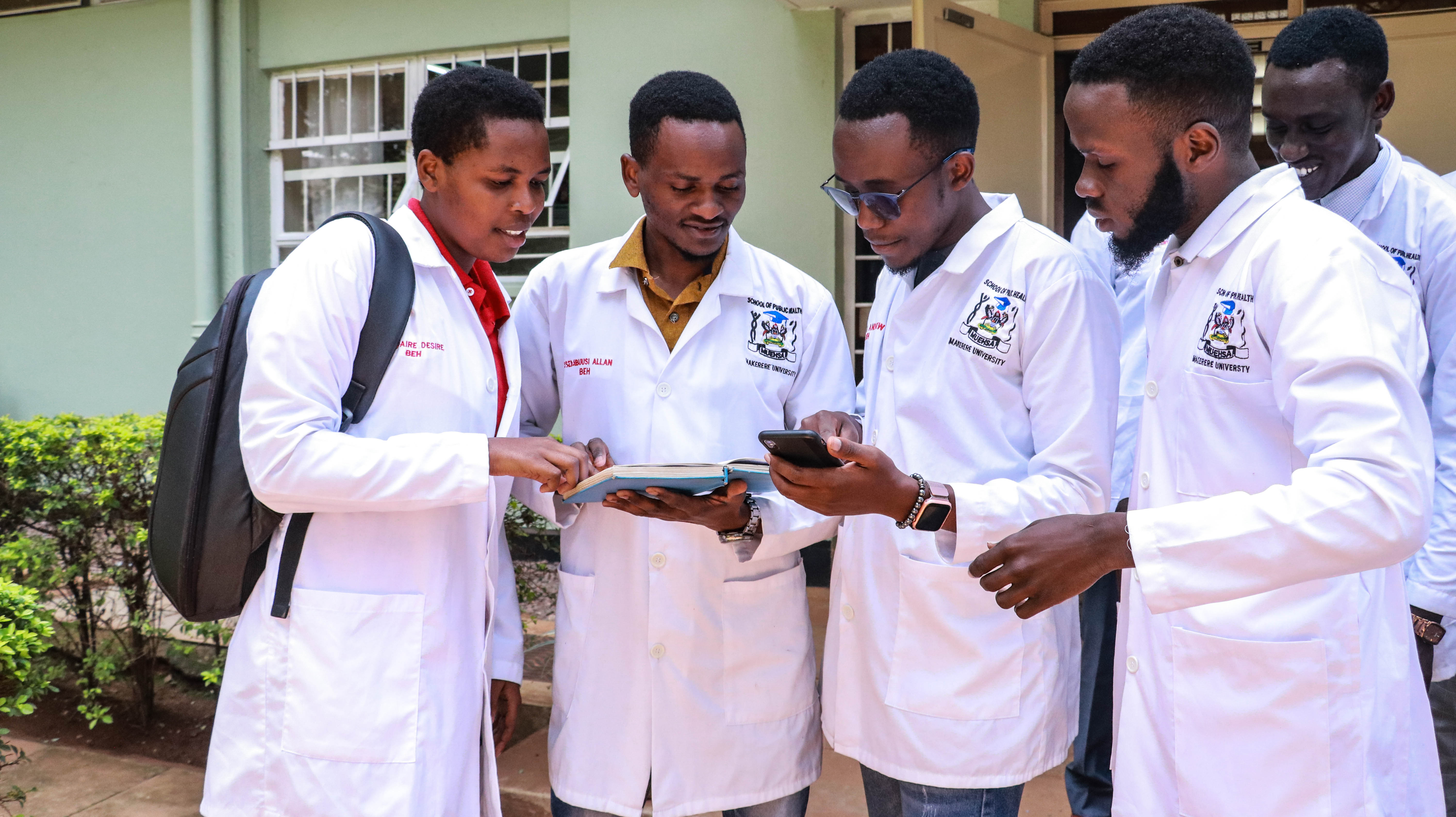
Allan Ssembuusi, (second left) discussing with classmates at Makerere School of Public Health last year. Photo by Davidson Ndyabahika
He commuted to school in his first semester, but during a brief holiday before the second semester, he decided to stop commuting and go back to his taxi business in the Old Taxi Park to earn money for accommodation. He was able to get some money and temporarily moved into Nkrumah Hall, one of the halls of residence for male students admitted to Makerere University, named after the great pan Africanist Nkwame Nkrumah of Ghana with a friend Kelvin Langat.
“I wanted to go back to work as a conductor to earn money for accommodation but it was the festive season so things didn’t work out. I decide to sell sugarcanes in Old Taxi Park because most people there, knew me. I used to contribute something and stay with him on the same bed before COVID came in and we had to leave campus,” a teary Ssembuusi recalls.
COVID-19 and Ssembuusi's campus nail business
As the COVID-19 pandemic swept the world, it brought with it a host of challenges for students like Ssembuusi. With lockdowns in place and classes conducted online, Ssembuusi was forced to find ways to make ends meet. Like many students, Ssembuusi found himself struggling to afford the costs of accommodation, and everyday living expenses.
“I went to New Taxi Park (the old one was closed for renovation at this time) and sold water there. It was a tough moment, because I found so many classmates there boarding taxis to go about their business. I wanted to quit, but I also still wanted to survive,” he says.
The Student Loan Scheme is a cost sharing initiative. The Loan strictly covers the academic component, i.e., Tuition fees, Functional fees, Research fees, Aids and Appliances for Persons with Disabilities (PWDs). For Ssembusi’s case, the loan covered Ushs1.8m fees inclusive of functional fees and he is indebted to the loan scheme; "I am thankful for the Student Loan Scheme for enabling me to continue my education, however, they have not yet paid for my last three semesters, preventing me from accessing my transcript until the debt is fully cleared. Despite the delay in payments, they would still allow us to sit for exams with the assurance that they would pay later."
It was during this time that Ssembuusi stumbled upon an unexpected opportunity. At a friend's home, he discovered a salon offering manicures and pedicures. Intrigued, he asked the owner to teach him the trade, and soon found himself learning the skills needed to set up his own mobile manicure and pedicure business.
With the support of his classmates, Ssembuusi's business quickly took off. Working on almost all of his female classmates, Ssembuusi found himself juggling the demands of her coursework and his business. But he was committed to making it work, and with the help of a loan from a friend, he was able to purchase the equipment he needed to keep his business running.
“I have been doing pedicure and manicure, and all my clients have been my colleagues. I was charging 10,000 to 30,000 Ushs for gel nails. People perceive it as a "low-key job", and I am sure it’s hard for most campusers to do this kind of work especially on their classmates. I know some people come from advantaged families, but for those of us who have been disadvantaged, please don’t look down on any opportunities or jobs that will help you raise some money to sustain you,” he says.
“I think I have worked on almost all my female classmates. The business boomed, I started getting recommendations but it was a challenge on my side to attend lectures and also attend to clients. My course is a full day course, and being a course representative, I had to be around. I managed to schedule my clients in the evenings and over the weekends when I worked all day.
Ssembuusi has throughout his school life struggled with self-doubt and imposter syndrome, but along the way found ways to overcome it through self-improvement and taking advantage of opportunities. He was active in the school community, serving as a class representative and holding leadership positions in Makerere University Environmental Health Students Association (MUEHSA).
He found success in extracurricular activities, such as participating in medical camps and running events. After finishing his course, Ssembuusi sought guidance from his mentors and ultimately landed a volunteer position under the mentorship of Dr. David Musoke, a Senior Lecturer in the Department of Disease Control and Environmental Health at Makerere University School of Public Health (MakSPH). His future goal is to pursue a Masters and eventually a PHD in academia and research. He encourages others to take advantage of opportunities in order to be successful.
Top Courses Currently Admitting
-
Bachelors in Nursing Science
Makerere University
-
Bachelor of Midwifery Science
Fins Medical University
-
Diploma in Physiotherapy
Uganda Institute of Allied Health and Management Sciences (Mulago Paramedical)
-
Bachelor of Arts in Community Disability Studies
Nkumba University
-
Diploma in Food Processing Technology
Kyambogo University














